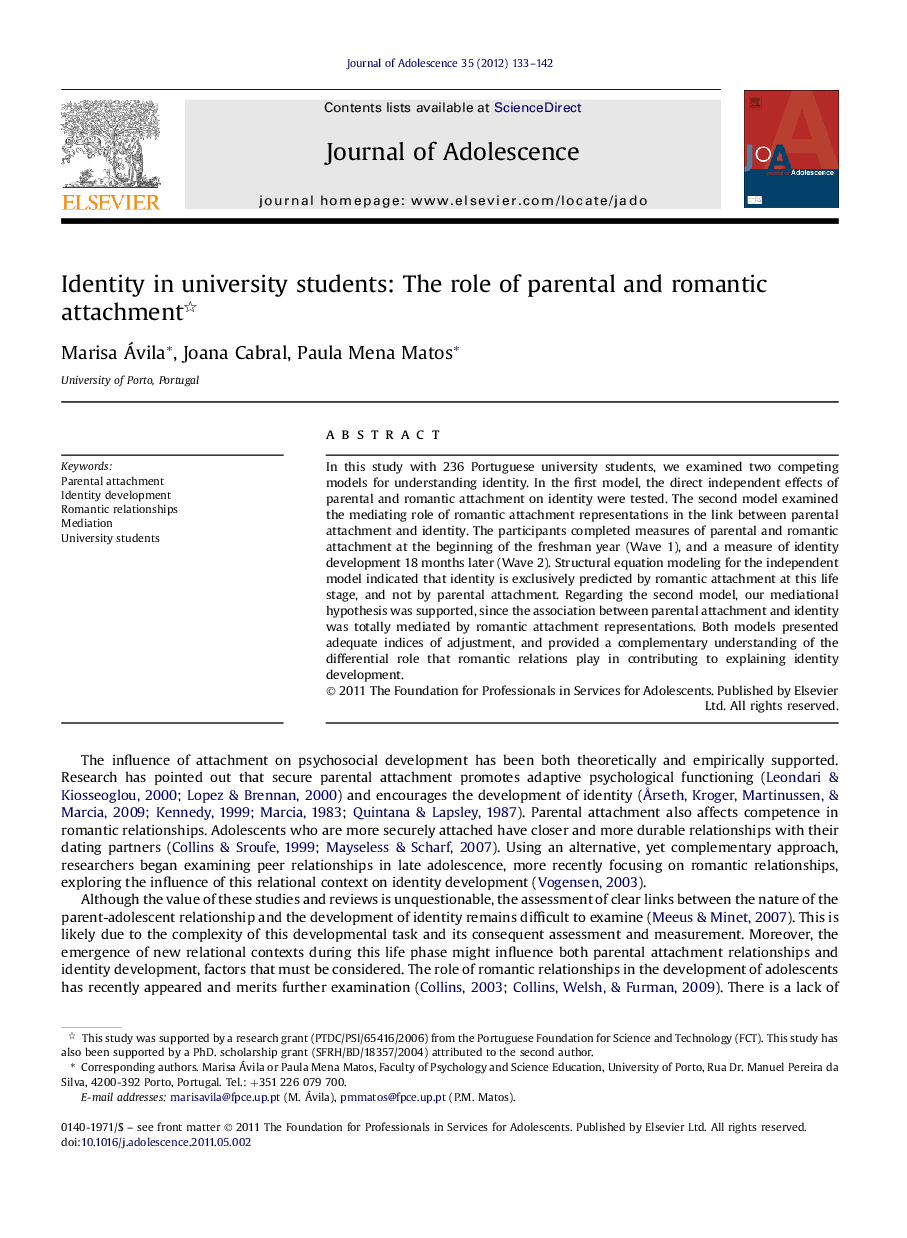| Article ID | Journal | Published Year | Pages | File Type |
|---|---|---|---|---|
| 10436760 | Journal of Adolescence | 2012 | 10 Pages |
Abstract
In this study with 236 Portuguese university students, we examined two competing models for understanding identity. In the first model, the direct independent effects of parental and romantic attachment on identity were tested. The second model examined the mediating role of romantic attachment representations in the link between parental attachment and identity. The participants completed measures of parental and romantic attachment at the beginning of the freshman year (Wave 1), and a measure of identity development 18 months later (Wave 2). Structural equation modeling for the independent model indicated that identity is exclusively predicted by romantic attachment at this life stage, and not by parental attachment. Regarding the second model, our mediational hypothesis was supported, since the association between parental attachment and identity was totally mediated by romantic attachment representations. Both models presented adequate indices of adjustment, and provided a complementary understanding of the differential role that romantic relations play in contributing to explaining identity development.
Related Topics
Health Sciences
Medicine and Dentistry
Public Health and Health Policy
Authors
Marisa Ávila, Joana Cabral, Paula Mena Matos,
